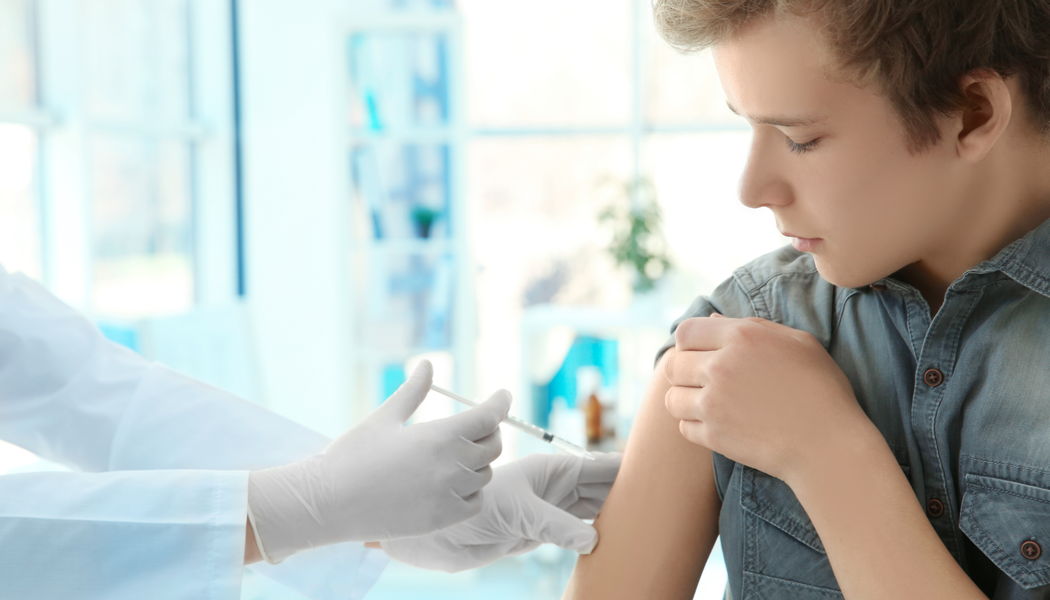Researchers Uncover Causal Link Between HPV and Prostate Cancer
Presence of human papilloma viruses (HPVs) in prostate tumors suggests countries should encourage universal vaccination against HPV infections.
A literature review published by James Lawson and Wendy Glenn from the University of New South Wales in Australia suggests human papilloma viruses (HPVs) may have a causal role in prostate cancer. September is Prostate Cancer Awareness Month. To learn more about prostate cancer, let’s explore the findings from this literature review and examine other risk factors associated with the disease, as well as steps that men can take to help reduce their risk.
Prostate Cancer: What You Need to Know
The prostate is a gland found only in males. It sits just below the bladder and in front of the rectum. When cells in the prostate begin to grow out of control, prostate cancer can develop.1
According to the American Cancer Society, approximately one in nine men will be diagnosed with prostate cancer in his lifetime.2 A man’s age, race and ethnicity, and family history can all contribute to his risk for developing prostate cancer, with the disease most likely to affect men who are older than 65 as well as African American men or Caribbean men of African ancestry.3
Prostate cancer is often found before symptoms appear. However, if a man experiences any of the following symptoms, its recommended that you make an appointment with a trusted health care provider:
- Trouble urinating, such as a slow or weak urinary stream or the urge to urinate more often
- Blood in the urine or semen
- Trouble getting an erection
- Pain in the hips, back, chest, or other areas
- Weakness or numbness in the legs or feet
- Loss of bladder or bowel control
Although these symptoms are often caused by conditions other than prostate cancer, it is important to speak with your health care provider to determine the specific cause of your symptoms.4
Prostate Cancer and HPV: What the Research Tells Us
In their literature review, which was published in Infectious Agents and Cancer in July, Lawson and Glenn examined the results of 26 studies conducted between 1980-2020 that looked at HPVs and their links to prostate cancer.
Eight of the 26 studies examined indicated that the prevalence of high risk HPV DNA was significantly higher in prostate cancers compared to normal and benign prostate controls. Furthermore, the more recent studies analyzed — those conducted after the year 2000 — showed that 231 of 1,071 prostate cancers (nearly 22 percent) were HPV positive.5
Lawson and Glenn also found that high risk HPV types 16 and 18, which are known to cause cervical cancer in women and can be prevented by the HPV vaccine, were identified in normal, benign, and malignant prostate tissues.5 Although HPV was previously known to cause other, rare cancers in men, its causal role in prostate cancer — which is expected to cause more than 33,000 deaths in the U.S. in 2020 — greatly expands the repercussions associated with contracting the virus.2
However, while more research is needed to understand the exact mechanisms for how HPV infection might lead to prostate cancer, the authors assert that the evidence compiled in this literature review makes a strong case for encouraging universal vaccination against HPV infections.5
Take Steps to Reduce Your Prostate Cancer Risk
While not all risk factors for prostate cancer can be mitigated, there are some steps that men can take to help reduce their chance for developing the disease.
Based on the results of the literature review published by Lawson and Glenn, all males ages nine to 45 should get vaccinated against HPV. In addition, living a healthy lifestyle may help reduce a man’s risk for developing not only prostate cancer, but a wide range of other illnesses. It’s recommended that men take steps to get to and stay at a healthy weight, keep physically active, and follow a healthy eating pattern.6
How NFCR is Leading Advances in Prostate Cancer Treatment
The National Foundation for Cancer Research (NFCR) is proud to support scientists who are working to advance treatments and find cures for some of the world’s most devastating diseases. NFCR-fellow Dr. James Basilion, recently developed a “smart” probe that, when topically applied to a tumor during surgery, lights up only cancer cells. This innovative device greatly improves the surgeon’s ability to detect tumor margins in prostate, breast, colon, and lung cancer. Learn more about Dr. Basilion’s research here.
For more information about prostate cancer, visit the NFCR prostate cancer webpage.
Additional Reads You May Enjoy:
Home Urine Test for Prostate Cancer Developed
Prostate Cancer Awareness Month: Signs, Symptoms and Treatments
Stay connected with us! Receive our monthly e-newsletter and blogs featuring stories of inspiration, support resources, cancer prevention tips and more. Sign up here.
___________________________________________________________________________________
References
1 What Is Prostate Cancer? (2019, August 1). Retrieved August 15, 2020, from https://www.cancer.org/cancer/prostate-cancer/about/what-is-prostate-cancer.html
2 Key Statistics for Prostate Cancer: Prostate Cancer Facts. (2019, August 1). Retrieved August 15, 2020, from https://www.cancer.org/cancer/prostate-cancer/about/key-statistics.html
3 Prostate Cancer Risk Factors. (2019, August 1). Retrieved August 15, 2020, from https://www.cancer.org/cancer/prostate-cancer/causes-risks-prevention/risk-factors.html
4 Prostate Cancer Signs and Symptoms. (2019, August 1). Retrieved August 15, 2020, from https://www.cancer.org/cancer/prostate-cancer/detection-diagnosis-staging/signs-symptoms.html
5 Lawson, J.S., Glenn, W.K. Evidence for a causal role by human papillomaviruses in prostate cancer – a systematic review. Infect Agents Cancer 15, 41 (2020). https://doi.org/10.1186/s13027-020-00305-8
6 Can Prostate Cancer Be Prevented? (2019, August 1). Retrieved August 15, 2020, from https://www.cancer.org/cancer/prostate-cancer/causes-risks-prevention/prevention.html












